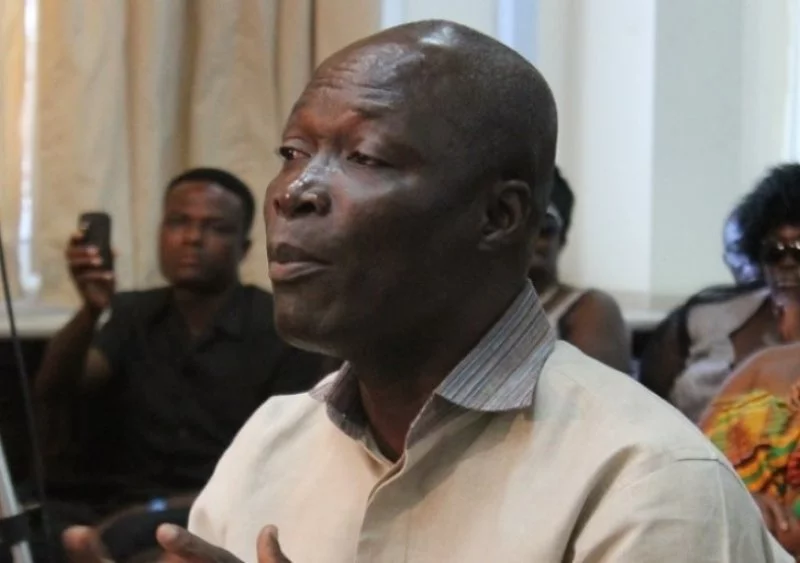The recent rerun of the partial Ablekuma North parliamentary elections, which saw the NDC candidate Ewurabena Aubynn wrest the seat from the NPP after 28 years, was unfortunately marred by several violent incidents. These incidents, involving assaults on NPP members, journalists, and voters, cast a shadow over the otherwise successful election process. While widely labeled as political violence, Edwin Nii Lante Vanderpuye, National Coordinator of the District Road Improvement Programme and former MP for Odododiodioo, offers a different perspective. He argues that the violence should be viewed as a targeted act of vendetta against former Awutu Senya MP, Mavis Hawa Koomson, rather than generalized political violence. This argument hinges on the claim that the perpetrators specifically sought out Koomson, suggesting a personal motive rather than a broad political agenda.
Vanderpuye’s assertion centers on the alleged history of violence associated with Hawa Koomson. He points to her purported involvement in previous incidents of electoral violence, for which she has allegedly not been held accountable. This lack of accountability, Vanderpuye contends, has fostered resentment towards Koomson, culminating in the targeted violence during the Ablekuma North rerun. He highlights the specific targeting of Koomson as evidence of a personal vendetta, contrasting it with the overall peacefulness observed at other polling stations during the election. This, he suggests, differentiates the Ablekuma North incidents from typical politically motivated violence, which often manifests as widespread disruptions across multiple locations.
The argument put forth by Vanderpuye raises critical questions about the nature of political violence and the role of accountability in mitigating such incidents. He implicitly criticizes the Akufo-Addo administration for failing to investigate and prosecute Koomson for her alleged past actions. This inaction, he claims, created an environment conducive to the targeted violence witnessed during the rerun. Had Koomson been held accountable for her previous alleged transgressions, Vanderpuye posits, the resentment and subsequent violence could have been avoided. This perspective underscores the importance of addressing allegations of violence promptly and decisively, regardless of political affiliation, to prevent escalation and ensure the integrity of the electoral process.
The Ablekuma North incident provides a compelling case study for examining the interplay between personal vendettas and the broader context of political violence. While the violence undoubtedly occurred within the politically charged atmosphere of an election, Vanderpuye’s argument compels us to consider the specific motivations behind the attacks. By focusing on the alleged history of the targeted individual, he challenges the conventional narrative of politically motivated violence and highlights the potential consequences of unaddressed grievances. This perspective raises important questions about how personal animosities can intersect with and escalate within the political arena, and the potential for such animosities to be misconstrued as purely political violence.
The implications of characterizing the Ablekuma North violence as a personal vendetta rather than purely political violence are significant. If accepted, this interpretation shifts the focus from a broad condemnation of political violence towards a more nuanced understanding of the factors contributing to such incidents. It emphasizes the importance of addressing individual acts of violence, particularly those involving prominent political figures, to prevent the escalation of personal grievances into broader conflicts. Furthermore, it underscores the crucial role of accountability mechanisms in deterring future violence and ensuring a peaceful and credible electoral process.
Ultimately, the events at Ablekuma North serve as a stark reminder of the complex nature of violence within the political sphere. While political motivations undoubtedly play a role in many instances of electoral violence, the Ablekuma North case highlights the potential for personal vendettas to intersect with and exacerbate these tensions. By focusing on the alleged history and targeted nature of the attacks, Vanderpuye’s argument challenges us to move beyond simplistic labels and delve into the underlying factors driving such violence. This nuanced understanding is essential for developing effective strategies to prevent future incidents and ensure the integrity and safety of the electoral process.


